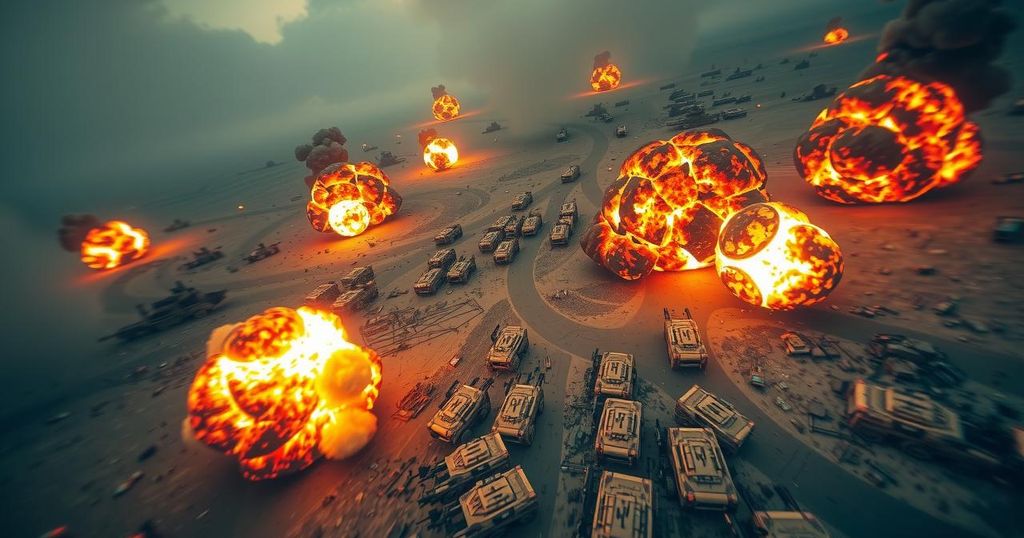Israel has expanded its military operations targeting Iranian assets in Tehran, with additional explosions reported in Syria and Iraq. This escalation follows ongoing tensions and attacks from Iran. U.S. observers warn of potential regional destabilization and the need for de-escalation efforts as Israel’s conflict continues to intensify, impacting humanitarian conditions, particularly in Palestine and Lebanon.
In a significant escalation of conflict in the Middle East, Israel has conducted military operations targeting Iranian assets, with strikes reported in Tehran and explosions acknowledged in Syria and Iraq. On Saturday, the Israeli military asserted its right to retaliate against perceived threats from Iran, citing ongoing attacks since the beginning of October. Explosions were notably reported near key locations in Iran’s capital, including Imam Khomeini International Airport and the prominent locations linked to the Islamic Revolutionary Guards Corps (IRGC). The Israeli Defense Forces’ spokesperson, Rear Admiral Daniel Hagari, articulated that these operations are a direct response to persistent assaults on Israel by Iran and its affiliates across multiple fronts. The conflict has already seen devastating humanitarian consequences, especially in Palestine and Lebanon, with more than 153,000 casualties documented in Palestine alone over the past year. Furthermore, the implications of these military actions resonate beyond the immediate scope, as U.S. officials noted awareness of Israel’s operations. Peace advocacy groups have raised alarms regarding the potential for heightened escalation, emphasizing that the U.S. should refrain from further entanglement in the conflict. Advocacy leaders infer that U.S. support may contradict its official stance of seeking to de-escalate regional tensions.
The ongoing tensions between Israel and Iran have given rise to an intricate web of geopolitical confrontations. Recently, Israel has intensified its military actions in response to alleged Iranian threats, prompting a series of retaliatory strikes. The backdrop includes a year-long conflict in Palestine marked by widespread casualties and humanitarian crises, exacerbated by Israel’s military engagements in Lebanon and ongoing hostilities involving militant groups in the region. The intricate relationship among these nations, coupled with external influences from states like the United States, highlights the precarious balance of power and security in the Middle East, which remains fraught with instability and the ever-present risk of further warfare.
In summary, Israel’s latest military actions against Iran, alongside reported strikes in Syria and Iraq, illustrate a critical moment in the ongoing regional conflict. The declaration of these military operations reflects a broader struggle for security and sovereignty amid escalating tensions involving multiple nations. As the situation unfolds, the broader implications for U.S. foreign policy and humanitarian considerations will remain pertinent, necessitating a careful reassessment of engagement strategies and diplomatic approaches.
Original Source: www.commondreams.org






